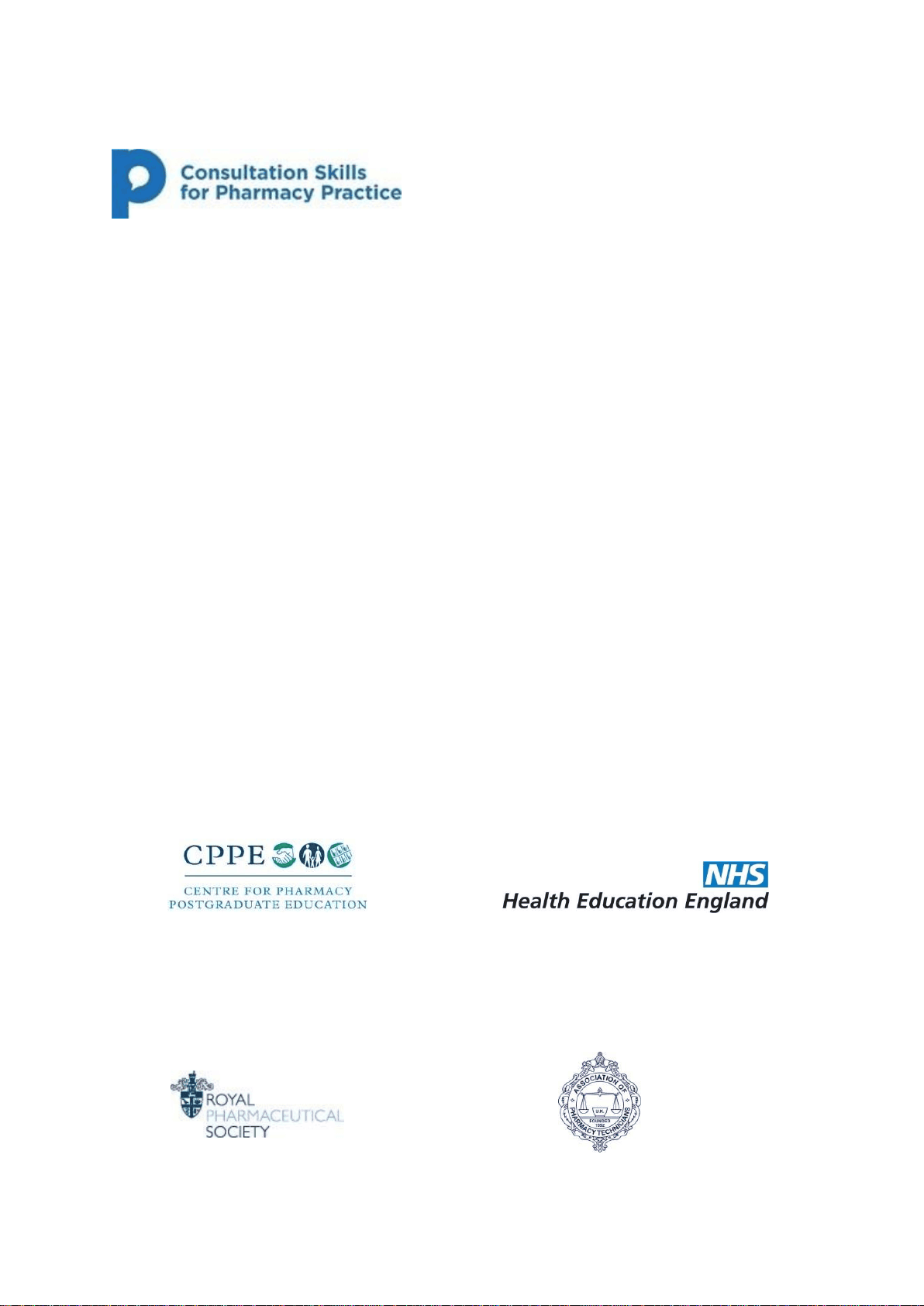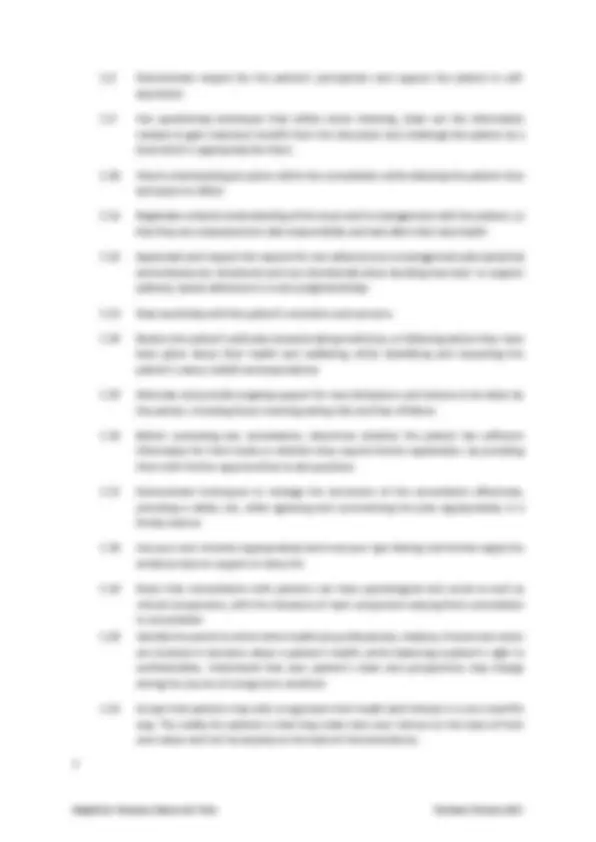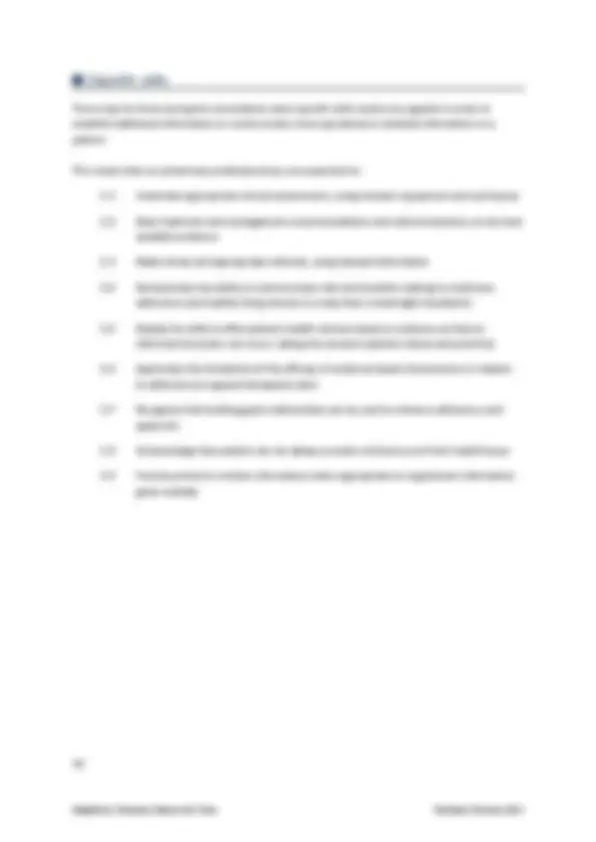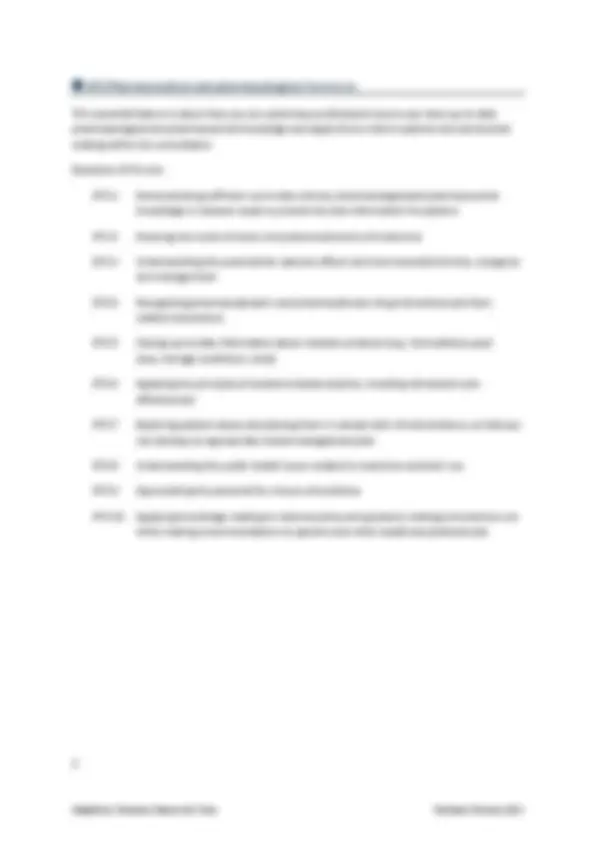





Study with the several resources on Docsity

Earn points by helping other students or get them with a premium plan


Prepare for your exams
Study with the several resources on Docsity

Earn points to download
Earn points by helping other students or get them with a premium plan
Community
Ask the community for help and clear up your study doubts
Discover the best universities in your country according to Docsity users
Free resources
Download our free guides on studying techniques, anxiety management strategies, and thesis advice from Docsity tutors
Consultation skills for pharmacy practice: practice ... Pharmacists have the relevant knowledge relating to medicines and health and wellbeing to provide.
Typology: Study notes
1 / 5

This page cannot be seen from the preview
Don't miss anything!




It is important to view the patient holistically and consider the big picture of internal and external factors that may influence adherence to a management plan. This means understanding and respecting the values, culture, family structure and beliefs of your patients, and understanding the ways in which these will affect the experience and management of their health issues and the way in which they take their medicines.
a) Key consultation skills and behaviours, including those relating to health coaching and taking a patient-centred approach. Coaching as a general concept helps people to set goals and identify ways of achieving them. Pharmacists have the relevant knowledge relating to medicines and health and wellbeing to provide the patient with the information they need, but can also use a coaching approach to give patients ownership of their own health goals. The coaching approach is based on evidence that taking a collaborative approach with the patient will increase the likelihood of behavioural change.^1
This means that as a pharmacy professional you are expected to:
1.1 Set the scene of the consultation professionally and appropriately while building rapport with the patient
1.2 Hear and acknowledge the patient’s agenda without interrupting and further balance with your own agenda before negotiating a shared agenda
1.3 Communicate positively and effectively throughout the session, using language that is appropriate and respectful to the patient (non-technical, non-jargon) that has the greatest positive impact on the patient
1.4 Share information and discuss options in an open, honest and unbiased manner to support the patient in assessing the risks versus benefits in relation to medicines- taking and making changes to lifestyle
1.5 Adapt your communication skills and consultation skills to meet the needs of different patients (e.g., for language, age, capacity, physical and sensory impairments)
1.6 Recognise that patients are diverse; that their behaviour, values and attitudes vary as individuals and with age, gender, ethnicity and social background, and that you should not discriminate against people because of those differences
1.7 Listen actively, focusing completely on what the patient is saying (and the non-verbal cues demonstrated by the patient) without interrupting, to understand the meaning of what is being said in the context of the patient’s desires
(^1) Definition adapted from that used by the London Deanery. Further information available from
http://www.londondeanery.ac.uk/global-news/coaching-for-health-training-programmes-march- 2012
There may be times during the consultation when specific skills need to be applied in order to establish additional information or communicate more specialised or detailed information to a patient.
This means that as a pharmacy professional you are expected to:
2.1 Undertake appropriate clinical assessments, using relevant equipment and techniques
2.2 Base treatment and management recommendations and referral decisions on the best available evidence
2.3 Make timely and appropriate referrals, using relevant information
2.4 Demonstrate the ability to communicate risks and benefits relating to medicines adherence and healthy living choices in a way that is meaningful to patients
2.5 Display the skills to offer patients health choices based on evidence so that an informed discussion can occur, taking into account patients’ values and priorities
2.6 Appreciate the limitations of the efficacy of evidence-based interventions in relation to adherence to agreed therapeutic aims
2.7 Recognise that building good relationships can be used to enhance adherence and apply this
2.8 Acknowledge that patients do not always provide a full picture of their health issues
2.9 Provide printed or written information when appropriate to supplement information given verbally.
This essential feature is about how you as a pharmacy professional ensure you have up-to-date pharmacological and pharmaceutical knowledge and apply this to inform patients and aid decision making within the consultation.
Examples of this are:
EF3.1 Demonstrating sufficient up-to-date clinical, pharmacological and pharmaceutical knowledge in relevant areas to provide the best information for patients
EF3.2 Knowing the mode of action and pharmacokinetics of medicines
EF3.3 Understanding the potential for adverse effects and how to avoid/minimise, recognise and manage them
EF3.4 Recognising pharmacodynamic and pharmacokinetic drug interactions and their relative importance
EF3.5 Having up-to-date information about relevant products (e.g., formulations, pack sizes, storage conditions, costs)
EF3.6 Applying the principles of evidence-based practice, including clinical and cost- effectiveness
EF3.7 Exploring patient values and placing them in context with clinical evidence, so that you can develop an appropriate shared management plan
EF3.8 Understanding the public health issues related to medicines and their use
EF3.9 Appreciating the potential for misuse of medicines
EF3.10 Applying knowledge relating to national policy and guidance relating to medicines use when making recommendations to patients and other healthcare professionals